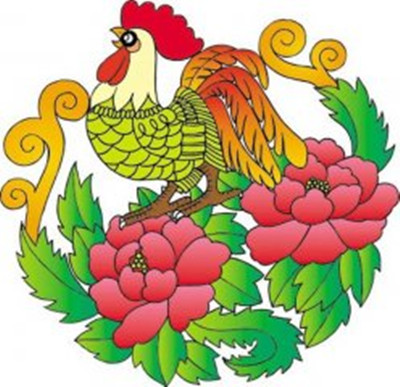It's four A.M.
早上四點,
You're tucked safely into a warm bed, savoring thelast few hours of sleep before daybreak.
你還在溫暖的被窩里蜷著,享受著天亮前為數不多的睡眠時間。
And then, suddenly… (a rooster crows).
此刻卻聽到雄雞打鳴…
It must be time to wake up, roll out of bed, and tend to the farm.
聞雞起“床”,爬出被窩,開始農作。
Except it's four A.M., it's still dark out, and you're not a farmer.
但是,現在才四點!外面黑咕隆咚的,而且,你又不是農民。
It's that neighbor of yours, the one that for some unimaginablereason keeps a rooster as a pet.
公雞是隔壁家的,因為什么難以理解的緣由把公雞當做寵物。
A rooster that flaunts the most basic rules of neighborhoodetiquette by crowing every morning before sunrise. What gives?
每天的黎明前,公雞都會打鳴,仿佛問候鄰居早安。這是為什么呢?

Most people assume that roosters are programmed to crow at the first sign of sunlight toannounce the dawning of a new day, or some such romantic notion.
大多數人認為公雞每當第一縷陽光照耀大地,就按規律打鳴,提示嶄新一天的開始。另外,還有很多浪漫的解說。
Like all birds, roosters call in a daily cycle determined by circadian rhythms.
和其他鳥類一樣,生理節律決定了公雞每天都要打鳴。
That is, a rooster'sinternal clock allows it to anticipate the sunrise and prepare for another exciting day of looking forfood.
也就是,公雞的生理鐘讓它期待日出,積極地為新的一天覓食。
But why must roosters crow as they prepare to start their day, and why do some roosters soundoff before dawn?
但是,為什么公雞會打鳴呢?而且偏偏是在黎明前呢?
Roosters are territorial creatures and don't much like other roosters trespassing on their land.
公雞有領地意識,自己的領地“決不許其它公雞侵犯”。
They crow in order to establish their domain and warn other roosters to stay away or prepare to brawl.
公雞以此來維護自己的領地,警告其它公雞遠離,否則一場爭斗難以避免。
And because their internal clocks are sometimes set a bit early, some roosters begincrowing well before sunrise.
又因為公雞的生理鐘有時候設置得早一些,所以,一些公雞打鳴在日出前。











